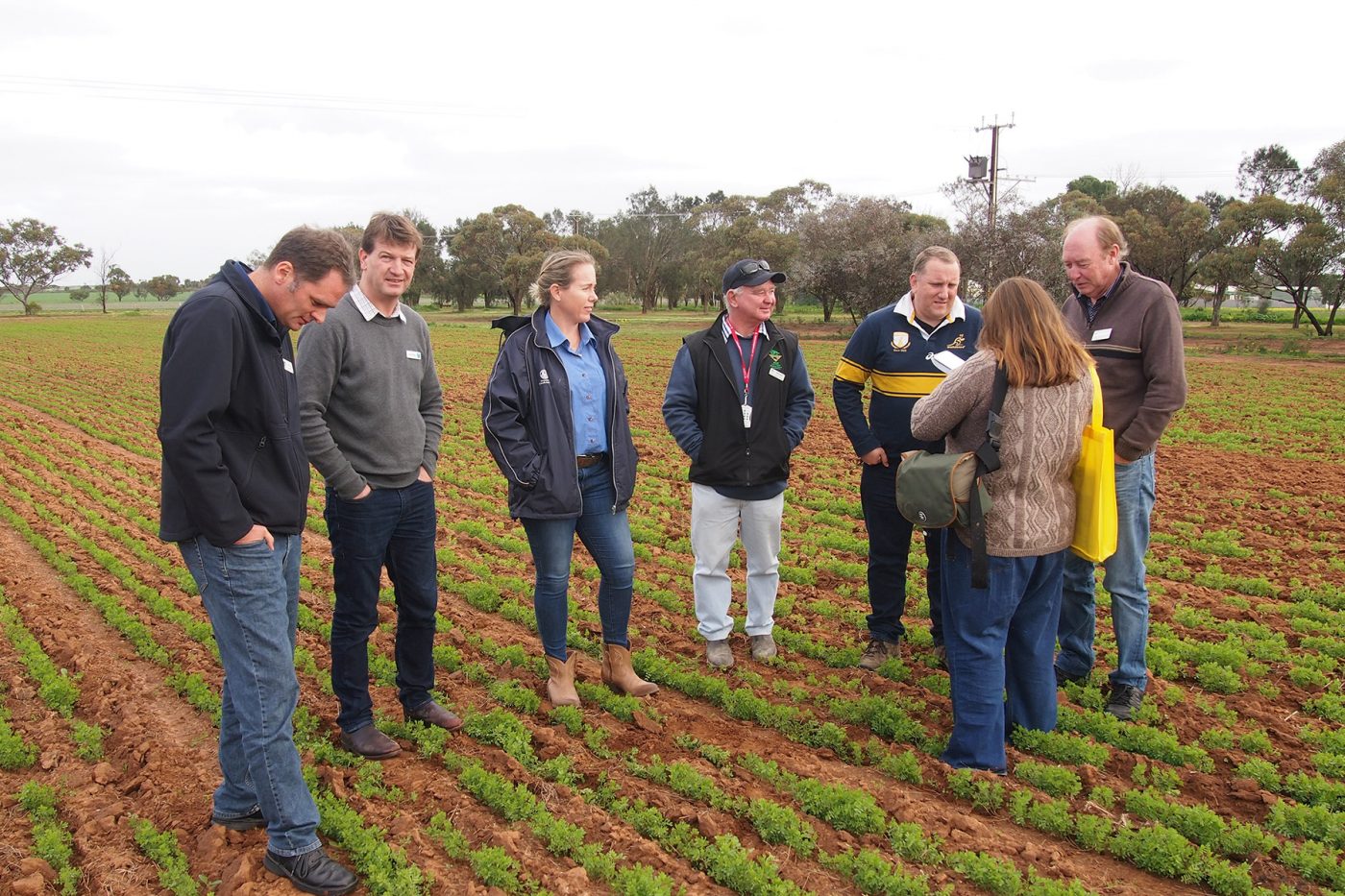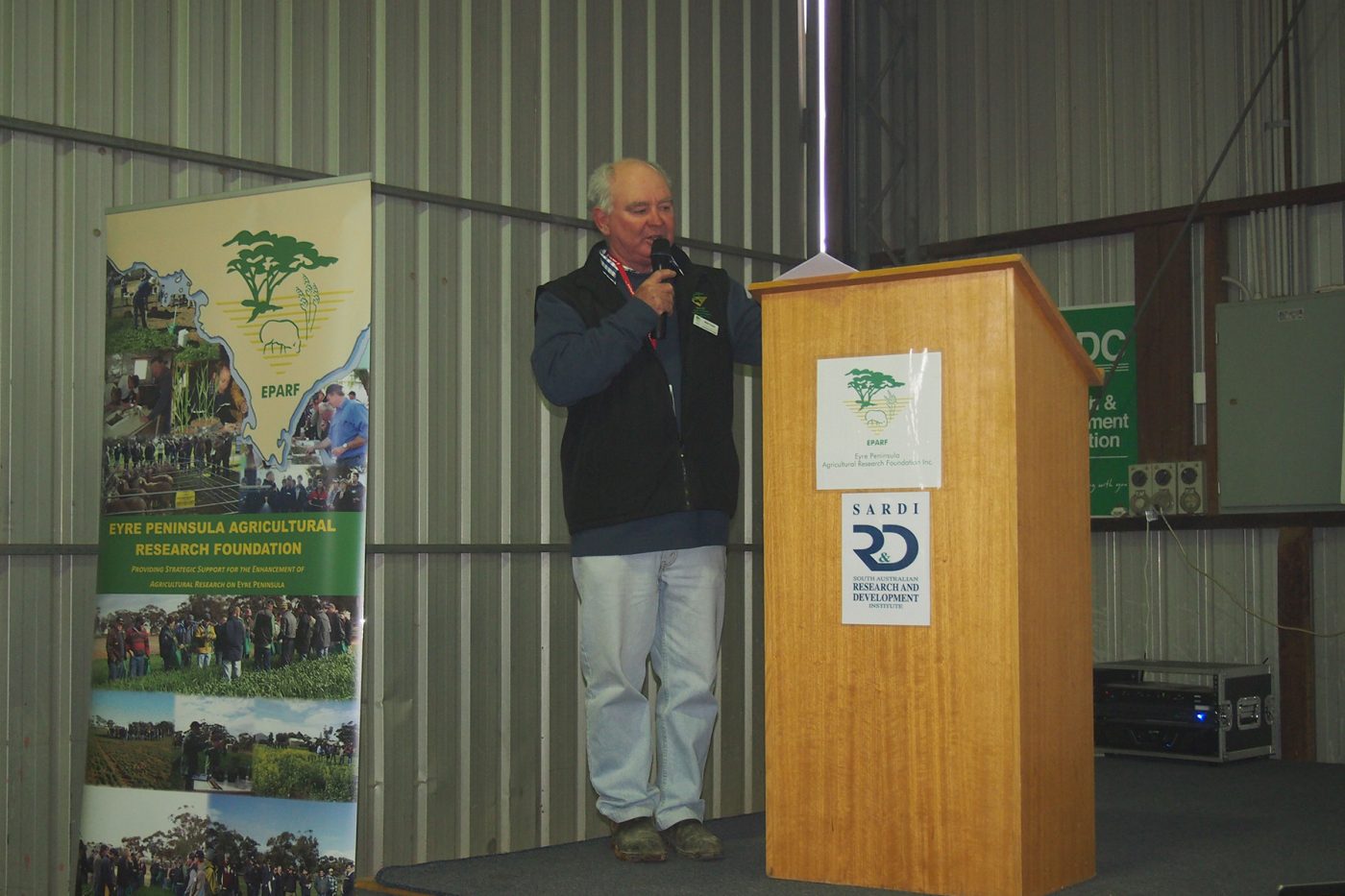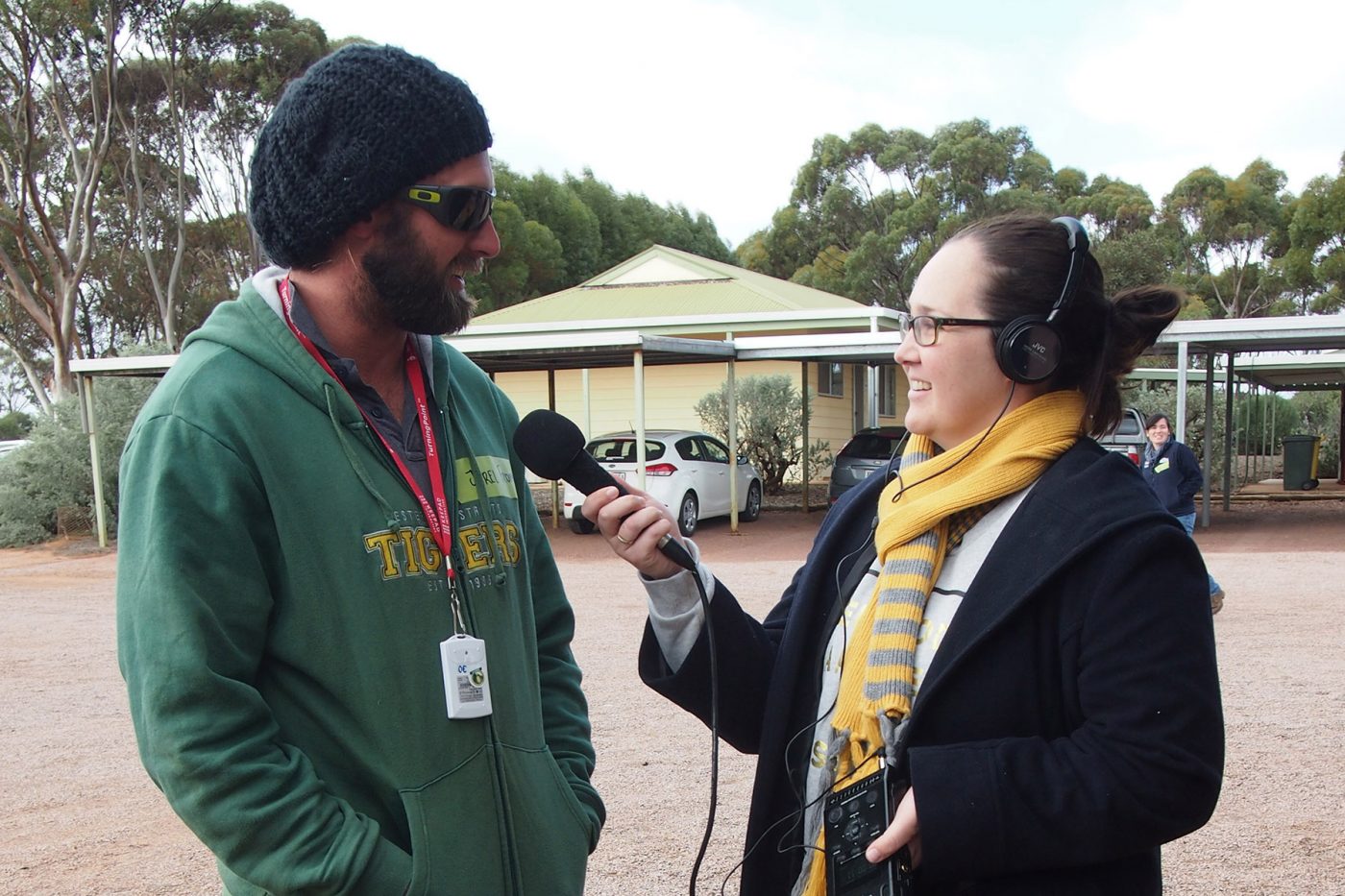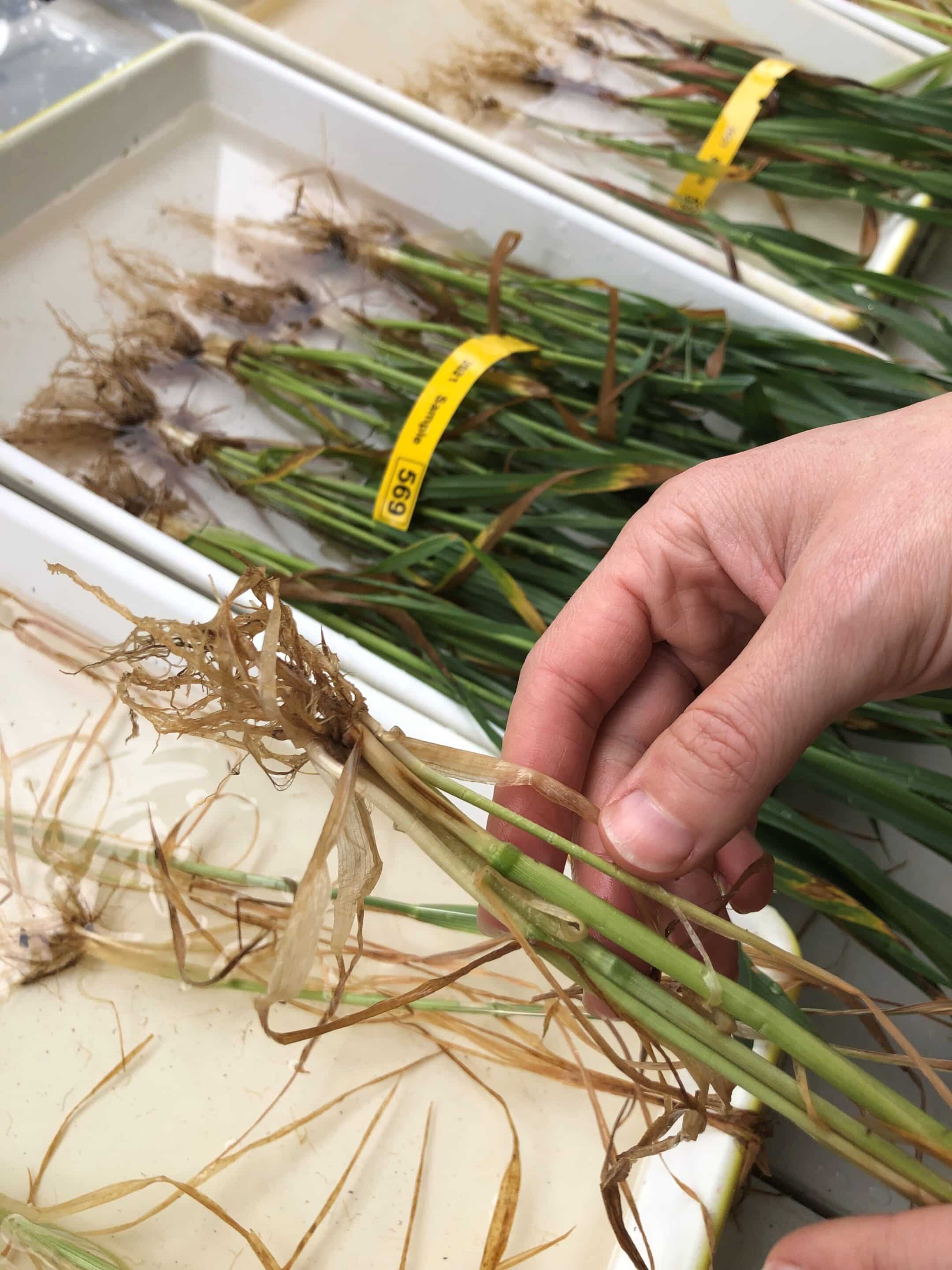START
FINISH

Summary
Mitigation strategies are a viable option to improve establishment and grain yield on sandy soils. Further extension of research trial work and farmer experiences would be beneficial to continue improved management on soil productivity, crop establishment and grain yield benefits on sands.
Background
Mitigation strategies are a viable option to improve establishment and grain yield on sandy soils. This is particularly relevant to the Eyre Peninsula, where more than 50 per cent of the area cleared for agriculture has sandy soil characteristics. The Eyre Peninsula Agricultural Research Foundation hosted a Sandy Soils workshop to address these strategies and provide practical advice to EP growers.
Research Aims
The core objectives of the project were to:
• Bring together key researchers and speakers on sandy soils;
• Improve grower understanding of managing sandy soils; and
• Guide further research or direction for future work.
In The Field
The Sandy Soils workshop was held at the Minnipa Agricultural Centre in July 2016 and attracted more than 140 attendees.
Characteristics of sandy soils addressed included low inherent fertility, poor moisture holding capacity, water repellence and soils prone to wind erosion.
The guest speakers were:
• Dr Stephen Davies, DAFWA, Amelioration of constrained sandplain soils in WA and Improving furrow sowing and developing management strategies for water repellent sands
• Dr Rick Llewellyn, CSIRO, Seven lessons learnt from seven years of research on Mallee sand
• Chris McDonough, Insight Extension for Ag, Huge yield benefits from spading trials in the SA Mallee
• Brett Masters, Rural Solution SA, Sandy soils – defining the issue
• David Davenport, Rural Solutions SA, New Horizons trial results – what do we do now?
• Ben Pope, farmer from Warramboo, Inversion ploughing
• Hayden Whitwell, farmer from Kimba, Spading
EPARF chair Simon Guerin opened the workshop and EPARF Special Skills and Experience board member Andy Bates facilitated a lively panel session with all speakers. The quality of questions raised indicated the topic was applicable, relevant and current.
Results
Keynote speaker Dr Stephen Davies spoke about practices used on sandy soils in WA to overcome constraints. His second presentation on managing water repellent sands highlighted preferred strategies to improve establishment and grain yield: mitigation using winged boots with paired rows, progressive amelioration, and controlled traffic. Soil wetting agents are less reliable but can be effective with dry seeding.
Research findings on Mallee sands showed improved agronomy has increased productivity but there is opportunity to raise the soil potential even further through amelioration treatments. The case for variable rate soil specific N to enable better nutrition management and improve production on sands is undeniable.
Trial results from the New Horizons project, which looks to confirm crop productivity can be substantially improved when soil chemical, physical and biological constraints in sandy soils are addressed, show there is potential for improved yields with soil modification activities. Productivity was greatly improved by incorporating organic matter deep into the soil (>30cm) and crop yields were boosted further with incorporation of clay and/or fertilizer to depth.
Broadacre spading trials in the Mallee with addition of chicken manure resulted in double yields in non-wetting sands with yield benefits from a combination of improved nutrition, moisture holding and breaking soil compaction. Results from spading header rows instead of burning reduced ryegrass numbers around 80% and spading pig manure into sand hills is being trialled in the southern Mallee.
Articles from all speakers were compiled into a publication for all attendees. Members unable to attend the event have access to the publication on the EPARF website. A summary and photos are also on the EPARF website.
Project Participants
Eyre Peninsula Agricultural Research Foundation (EPARF)
The Problem
More than 50 per cent of the area cleared for agriculture on the Eyre Peninsula has sandy soil characteristics. Mitigation strategies are a viable option to improve establishment and grain yield on sandy soils.
The research
The Sandy Soils workshop was held at the Minnipa Agricultural Centre and attracted more than 140 participants to hear topics such as sandy soils, research results and outcomes, and practical strategies to better address specific sandy soil challenges.
More information
Dot Brace, EPARF
T: 08 8680 6202
E: [email protected]
Value for Growers
• Mitigation strategies are a viable option to improve establishment and grain yield on sandy soils
• On mild to moderate water repellent soil, winged boots with paired rows have been found to be one of the most reliable mitigation options
• Improved agronomy has allowed productivity from sands to get closer to current potential but there is opportunity on many sands to raise the soil potential even further through amelioration treatments
• More than 90 per cent of attendees gained extra knowledge with nearly 70 per cent planning to do something different as a result of the information presented
Further extension of research trial work and farmer experiences at events like this would be beneficial to continue improved management on soil productivity, crop establishment and grain yield benefits on sands.
Latest Research Projects







